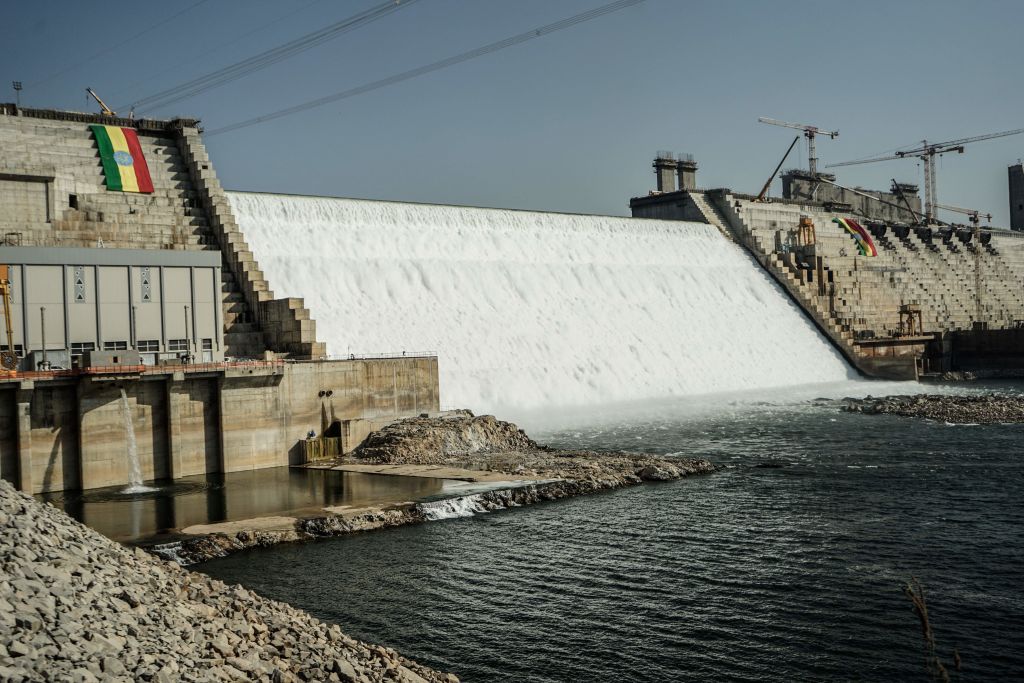ADF STAFF
After two years of silence, Egypt and Ethiopia recently restarted talks about the management and potential downstream impacts of the Grand Ethiopian Renaissance Dam (GERD), which straddles the Blue Nile, the primary Nile tributary.
Since it was announced, the $4.2 billion GERD has been divisive. Egypt sees the dam as a threat to the existence of the country, which gets 97% of its water from the Nile. Ethiopia sees the megaproject and the electricity it generates as vital to its economic future.
Sudan is the third party in the talks but has expressed some support for the project because the dam promises to control flooding that threatens Khartoum, which sits where the Blue Nile and White Nile meet.
The Blue Nile provides 85% of the Nile River’s volume. Egypt sees the dam as a potential weapon — should the Nile countries find themselves in conflict, Ethiopia could restrict the river’s flow as a tool of war, according to Alex de Waal, executive director of the World Peace Foundation.
Egypt and Sudan, which have their own dams on the Nile, want Ethiopia to join a binding agreement to operate the dam in a way that does not reduce the Nile’s downstream flow in a way that would harm the country’s agriculture.
Ethiopia has resisted any legally binding framework.
The first round of talks held in late August ended after two days. Egypt’s Ministry of Water Resources and Irrigation reported that talks broke off because Ethiopia’s position had not changed appreciably.
“The round of negotiations that has ended in Cairo did not witness a tangible change in Ethiopia’s positions,” the Egyptian government said in a statement at the time. “Egypt will continue its efforts to reach in the nearest time possible a legally binding deal … that safeguards Egyptian interests and water security while benefiting the three nations.”
Ethiopia argues that recommendations, rather than a binding agreement, should be enough to protect the interests of its downstream neighbors. It insists that the strategy for operating the GERD is a matter of national sovereignty.
In April, Ethiopia’s Office of National Coordination announced that construction was 90% completed.
Dam advocates say that because the water flows through the dam to make electricity, it poses no risk to countries downstream. In the long run, the project could strengthen ties among the countries that rely on the Nile, according to some researchers.
Researchers at the University of Manchester in the United Kingdom say the nature of the GERD project demands compromise from all involved. They suggest that the dam can provide electricity for Ethiopia, flood control for Sudan and drought protection for Egypt — but only if the countries work together.
“Our goal is to show that any step towards adaptive cooperation results in benefits,” the researchers wrote earlier this year in the journal Nature.
Among those potential benefits: Researchers say Egypt could tap the dam’s huge stores of water during droughts as shifting weather patterns change regional rainfall patterns.
Negotiators hope to resolve their dispute by the end of this year. Despite the abrupt ending of talks in August, Ethiopia’s foreign ministry cast a favorable light on the return to negotiations.
“The parties exchanged views to reach a win-win situation,” the ministry said in a statement.
The next round of talks is scheduled to be held this month in Addis Ababa.

